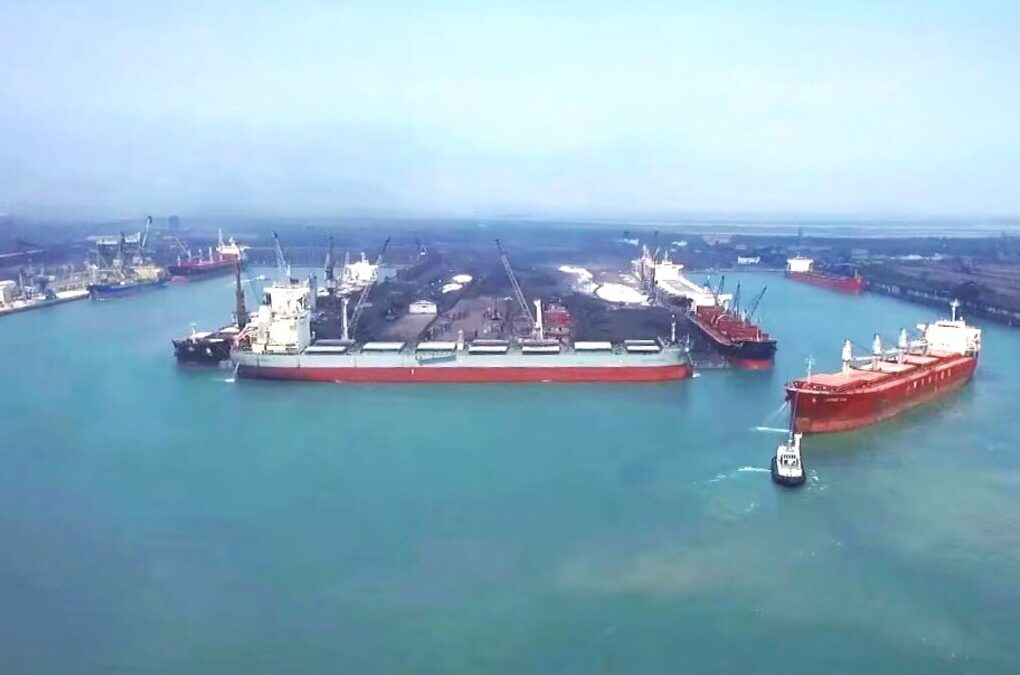Government Designates Key Maritime Hubs for Green Hydrogen Development
India designates three major ports as green hydrogen hubs to accelerate clean energy adoption and boost maritime sustainability.
India has identified three of its major ports — Deendayal in Gujarat, V.O. Chidambaranar in Tamil Nadu and Paradip in Odisha — as green hydrogen hubs under the National Green Hydrogen Mission, the Ministry of New and Renewable Energy said Friday.
The move marks a milestone in India’s effort to build an integrated hydrogen ecosystem and accelerate its shift to clean energy.
Strengthening India’s Hydrogen Ambitions
The National Green Hydrogen Mission, launched by the government, aims to position India as a global leader in the production, use, and export of green hydrogen.
The mission envisions large-scale hydrogen hubs as central nodes for production and consumption, creating a sustainable and competitive hydrogen economy.
Union Minister for Ports, Shipping and Waterways Sarbananda Sonowal said the recognition highlights India’s maritime readiness for a cleaner future.
“Ports are important nodes in this transition,” he said. “As Green Hydrogen hubs, our ports will act as catalysts of clean energy innovation.”
Sonowal added that India’s ports, positioned strategically on global trade routes, would “power the region’s transition to sustainable logistics.”
Cluster-Based Approach for Early Viability
To address challenges in hydrogen transport, the mission adopts a cluster-based development model. This strategy aims to strengthen early-stage project viability, optimize infrastructure use, and achieve economies of scale.
Revised guidelines issued in June 2025 outline the criteria for setting up Hydrogen Valley Innovation Clusters and Green Hydrogen Hubs.
Under Component B2 of the guidelines, MNRE can recognize hydrogen hubs without direct financial aid. However, these hubs can access incentives available through other central and state government schemes.
Ports to Catalyze Investment and Innovation
According to the ministry, Deendayal, VOC, and Paradip ports were selected following a detailed assessment of their strategic potential and industrial readiness. Projects within these zones will benefit from various policy-linked incentives under the National Green Hydrogen Mission.
Officials said the recognition is expected to attract industrial participation, boost green investments, and promote innovation in hydrogen and related clean fuel technologies.
Driving Toward Net-Zero
India has pledged to achieve net-zero emissions by 2070, with the port sector emerging as a key driver of this goal. The establishment of hydrogen hubs at these ports will support energy self-reliance, expand clean fuel use, and enhance India’s competitiveness in the global energy transition.
“This marks a defining moment in India’s maritime journey,” Sonowal said. “Under the leadership of Prime Minister Narendra Modi, we are building an ecosystem of sustainable development that will guide India toward a net-zero future.”
The competent authority approved the recognition of the three ports, MNRE said.
Also Read:
India Pushes to Become Global Hub for Green Hydrogen Innovation
Government Designates Key Maritime Hubs for Green Hydrogen Development
Nirmal Menon
Related posts
Subscribe
Error: Contact form not found.


